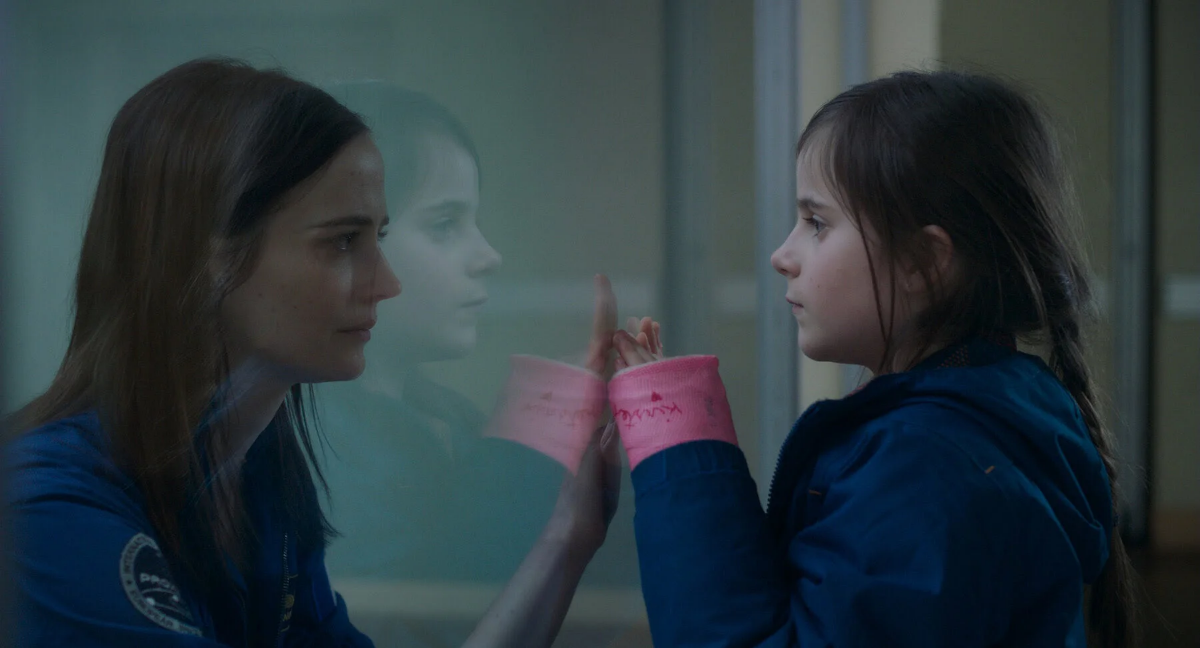In “Proxima,” the allure of a trip to another planet comes to symbolise the inevitable isolation of being a human in the world. To be alive is to be alone, even as we yearn for connections to the ones we love. Art’s engagement with space has always been about the ways that humans act out their existence. But, what does it mean to be a human? And how does that humanity shift with an imminent trip off the planet?
Alice Wincour’s French space-drama premiered at the Toronto International Film Festival in 2019, but the international release has been nebulous – compounded by the unpredictability of 2020 release schedules. It premiered for audiences in some parts of the world on Netflix at the end of December, feeling like an especially apt thesis on the isolation-connection that defines our lives. In “Proxima”, Eva Green plays Sarah, an astronaut chosen as a last-minute addition to a crew that’s bound for Mars. Sarah, and the rest of her crew, will be among the first humans to lose sight of the Earth. It’s a moment she’s been waiting for her entire life, but the professional thrills are complicated by human responsibilities. Sarah must navigate the care of her daughter as she and her ex-husband try to adapt to the upcoming separation.
Wincour’s drama hews close to Sarah’s sensibilities, distilling the philosophical and scientific concerns about space through Sarah’s headspace as she begins to steel her mind for the unknown. Her clear-sighted interest in female concerns make “Proxima” a sharp assessment of womanhood within the workplace as Sarah adapts, and bristles, at the professional setting of her job compounded by the open hostility of the American captain (Mike Dillon as the English-speaking captain in the otherwise French film). As effective as the film’s arc of professional fortitude is, “Proxima” comes to define its value by the most thoughtful plot-line – Sarah’s relationship with her daughter Stella (played by Zélie Boulant-Lemesle who has excellent chemistry with Green). In that relationship, Wincour examines the themes with which she seems most preoccupied. Our own fear of isolation amidst our almost desperate desire to connect.
There’s a moment in the final act of “Proxima” that speaks to these themes with incisive clarity. Sarah and Stella meet in a room. A pane of glass separates them as they speak to each other. They cannot touch, but they lean into each other. In a moment of great emotion, they each raise their hands, touching the glass where the other’s hand is and the camera draws close as they remain in that position – reaching out. And, in a moment of such deliberate specificity, Georges Lechaptois’ camera catches a moment where Stella’s reflected face is mirrored and then imprinted on her mother’s as the two of them form a heart-rending tableau. An ode to connection. Together, but apart. Different, but the same. If Wincour uses image to present her argument, then this moment is the thesis statement of “Proxima”. It means a lot that this space movie recognises that ultimately our obsession with space is really about our obsession with our own humanity and the ways that it is tied to the corporeal and our ideas about distance and closeness.
Green, as Sarah, serves as a necessary anchor for those themes. “Proxima” feels like a testament to the possibilities of Green’s talent in a film that recognises her ability. At her best, Green has always an adeptness for playing ambivalence in complicated ways while avoiding the dullness of seeming emotionally disconnected. So much of Sarah’s journey here is internal – parental responsibility, work anxieties, existential crises. What’s more, “Proxima” is directly engaging in a long line of art which excavates these issues. But Wincour, by way of Green, isn’t pronouncing the film as feminist with any overt or overemphasised moments. Instead, the film swerves right up to Sarah and interrogates the specificity of her personal concerns as a roadmap for what it means to be woman.
With that specificity, Wincour (who co-writes the film with Jean-Stéphane Bron) seems to be asking questions about what it mean to be a human when one is no longer tethered to the things that define our humanity. Even as “Proxima” remains grounded on earth for its runtime, its philosophical engagement with the ruptures of existentialism leave it feeling like something of the sky. It’s not a misnomer to call it a space movie even though we never actually have a scene in space. That Wincour recognises what these possibilities – and their limits – mean for women makes “Proxima” a welcome shift from the way we think of space travel as masculine and the way her swerves in theme develop, also adds a necessary shift in the ways we think of working mothers.
Travelling to space has been interpreted in many sharp ways in art – as means of colonisation, exploration, desire. In “Proxima,” the search for new lifeforms is part of our desire to look for connections. In an early scene, Stella takes a picture of her divorced parents in a restaurant. She wants to keep that moment. It is as if she knows what many adults do not – that moment of connection is temporary. But in the final moments of the film, there’s a shot of Stella reacting to something from outside a window that tells us enough of what we need to know. Even in the unpredictable chaos of the world and the uncertainty of what may come, the moments of connection can be enough to last a lifetime. Maybe, even in the wake of the inevitable separations that define our existences, we are going to be alright, after all.
Proxima is streaming Netflix and available for rent or purchase from Prime Video, iTunes and other platforms






